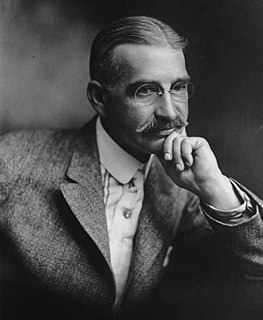A Quote by Napoleon Hill
The bottom is a monotonous, dreary, unprofitable place for any person. That is why I have taken the time to describe how lowly beginnings may be circumvented by proper planning.
Related Quotes
To describe love-making is immoral and immodest; you know it is. To describe it as it really is, or would appear to you and me as lookers-on, would be to describe the most dreary farce, to chronicle the most tautological twaddle. To take note of sighs, hand-squeezes, looks at the moon, and so forth--does this business become our dignity as historians? Come away from those foolish young people--they don't want us; and dreary as their farce is, and tautological as their twaddle, you may be sure it amuses them, and that they are happy enough without us.
Official opposition to overall economic planning and planning controls has been characterized in a recent editorial as "Papa knows best." But it is precisely because Papa does not know best that I believe that Government should not presume to tell any businessman or industrialist what he should or should not do, far less what he may or not do; and no matter how it may be dressed up that is what planning is.
A place (lieu) is the order (of whatever kind) in accord with which elements are distributed in relationships of coexistence. It thus excludes the possibility of two thing being in the same location (place). The law of the 'proper' rules in the place: the elements taken into consideration are beside one another, each situated in its own 'proper' and distinct location, a location it defines. A place is thus an instantaneous configuration of positions. It implies an indication of stability.
It is the great business of every Christian to save souls. People complain that they do not know how to take hold of this matter. Why, the reason is plain enough; they have never studied it. They have never taken the proper pains to qualify themselves for the work. If you do not make it a matter of study, how you may successfully act in building up the kingdom of Christ, you are acting a very wicked and absurd part as a Christian.
You never stop the measuring process because these are oceans that are so deep that they have no bottom, and it takes a long time to know that. It only goes to a higher place after you've gone to the depths where you think there's a bottom - and when you find out that there is no bottom, it just rises up into this plume of euphoria.



































